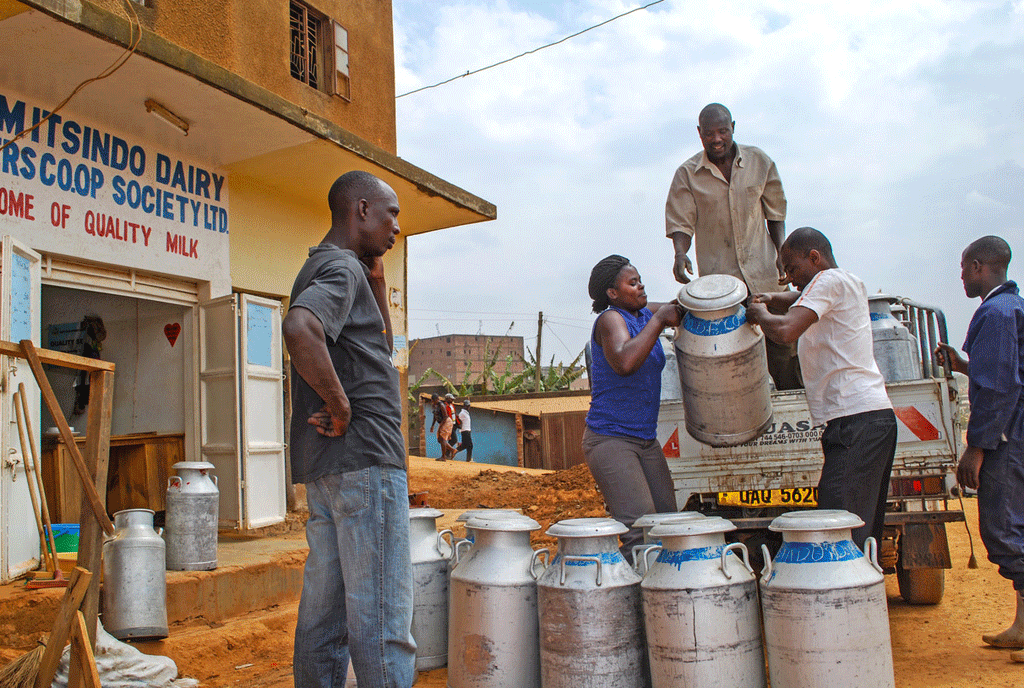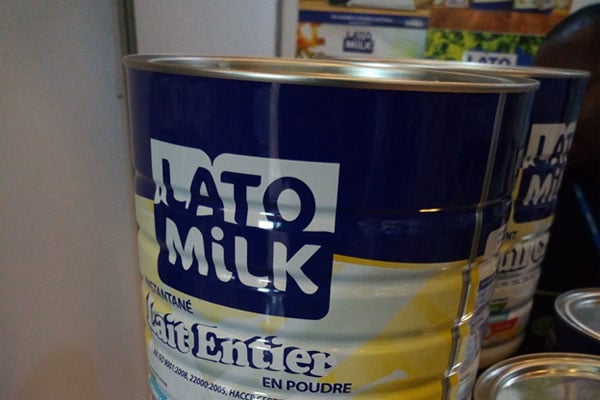Prime
Brookside cites politics in denial of milk export permits by Kenyan authorities

Brookside employees prepare to cover powdered milk stockpiles to safeguard it from moisture and water in one of the warehouses in Kampala last week. Part of the milk had been produced for export to Kenya. Photo / Stephen Otage
What you need to know:
- Brookside says in the last two months it has put in 80 applications for milk export permits but none of them has been cleared by the Kenyan authorities
Brookside Dairies has said politics could be at play for the decision to deny export permits to some Ugandan companies that export milk to Kenya.
Brookside, which is itself based in Kenya, operates assets previously owned by Sameer Agriculture Livestock Limited, with a number of their products produced under the Fresh Dairies and Brookside brands.
The Kenyatta family of former president Uhuru Kenyatta, which owns Brookside, acquired Sameer Agriculture Livestock at Shs3.2b in 2015.
Speaking at a media briefing in Kampala at the weekend, Mr Benson Mwangi, the Brookside general manager, said it was unfortunate that for two months now they had failed to get permits to export milk and associated products to Kenya.
“The other day, I saw in the papers that it was only powdered milk but even long life milk. For the last two months we have not been able to do even a single litre of milk exports to Kenya,” he said, noting that the rising stockpiles have impacted farm-gate milk prices, which have dropped from an average of Shs1,600 in March to Shs550.
The fall, he said, represents a 60 percent decline in price, which has affected the entire value with the factory now unable to process long life milk but only producing powdered milk to sustain the machines.
Mr Mwangi also indicated that the stockpiles had grown to about Shs15b, yet the authorities in Kenya have not indicated why Brookside Dairies cannot obtain export permits.
Last week Dairy Development Authority indicated that Kenyan authorities had reduced issuing export permits to Uganda’s powdered milk by about 20 percent, noting that this was happening despite a commitment to lift the ban that had unilaterally barred milk from Uganda from entering Kenya.
In a March 6 letter, Kenya Dairy Board indicated that the expected rains in (March) would significantly boost milk production, thus reducing the need for imports.
“In anticipation of the long rains, government has stopped importation of milk powders to cushion the industry from surplus production and low producer prices,” the letter said, noting that Kenya Dairy Board had temporarily suspended the issuance of milk import permits until further notice.
However, days later, Kenyan authorities suspended the ban, citing protocols under the East Community that allow free movement of goods within the region.
Mr Mwangi also appealed to government to engage Kenya, noting that “some people think this is political while others think otherwise” but ultimately, “you may think you are punishing Brookside but you are punishing farmers”.
He said none of the 80 applications for export permits they had submitted to the authorities in Kenya had been cleared yet other companies are allowed to export.
Brookside, Mr Mwangi said, has in the last eight years invested heavily in refurbishment of its business in Uganda but the investment is being threatened by the current blockade.
Mr Mike Mukula, the Uganda Clearing and Freight Forwarders’ Association patron, who was part of the team that inspected the building stockpiles, said it is important that this matter is handled effectively, given that the dairy sector is an important sector .
“It is important to quickly move as a country and solve this matter in a corporate and bilateral level in order to insure that milk farmers and those involved in the dairy sector and the milk chain do not suffer further losses,” he said.
This is not the first time Kenya is banning Ugandan exports. Dairy and poultry products, beef, sugar and maize have all been victims.




